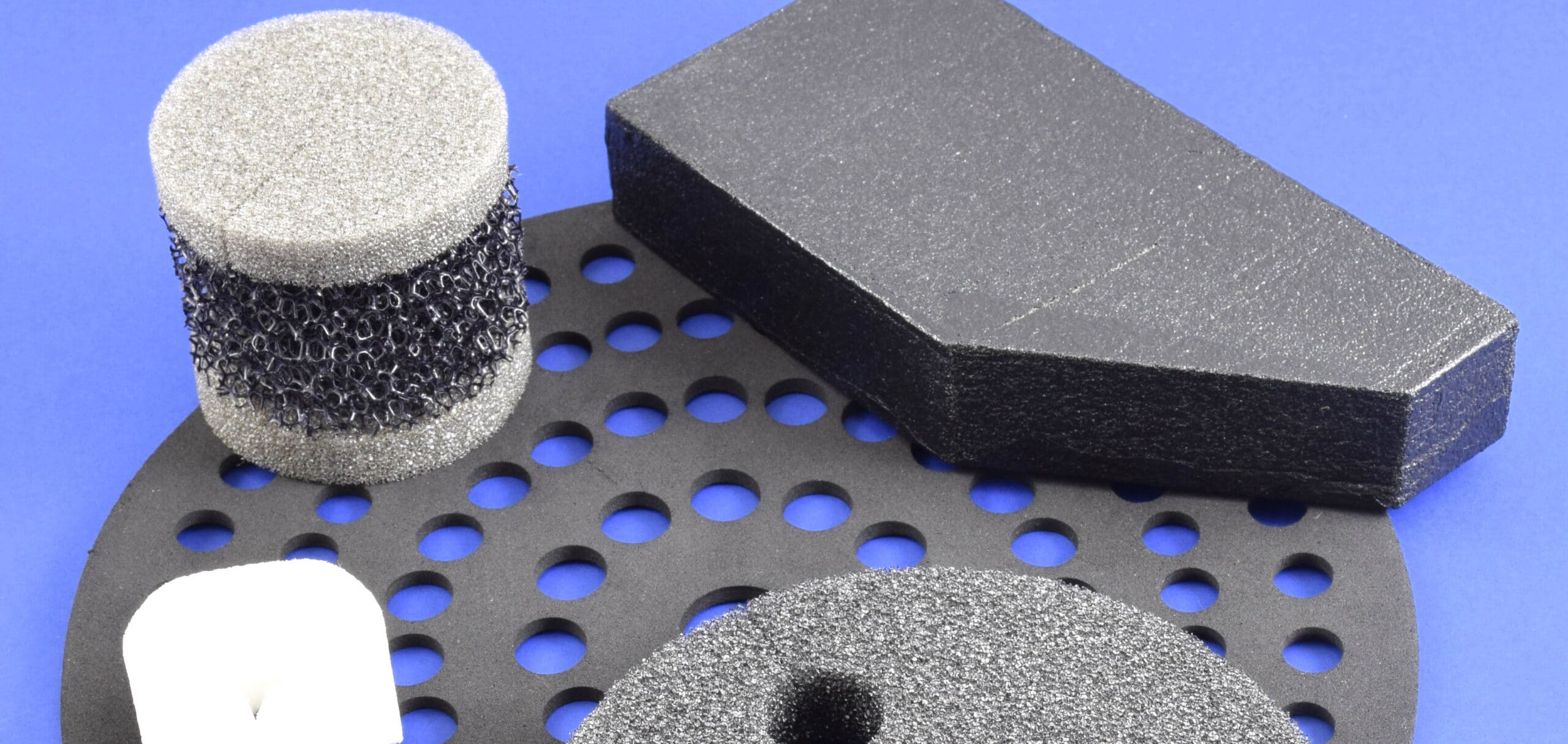
Many products require flexible materials like silicone foam, rubber, and more. From gaskets to bumpers/cushions to insulators, the possibilities are vast. But what characteristics need to be taken into consideration when choosing materials to use in your products?
While there’s no one-size-fits-all solution in manufacturing, here are a handful of important factors to evaluate when choosing your flexible materials:
- The ability to withstand both high and low-temperature extremes.
- Whether or not it can protect electronic components from destructive electromagnetic interference (EMI) or radio frequency interference (RFI).
- Resistance to chemicals, especially when used in gaskets and seals.
- Compatibility with adhesives.
- Deflection of water and air.
- Flame resistance.
- Pressure handling.
- UV and Ozone exposure resistance.
- Vibration handling and absorption.
- Contamination blocking.
- Compression force absorption.
- Insulative capability in regards to electronic/electromechanical equipment and acoustical insulation.
- Conformability to any size space.
- Thermal conductivity.
While all of these factors are important, they’re not all required for every product. To determine which are necessary for your items, please contact our materials engineers for a consultation!
Get Your Free Quote on Flexible Materials
American Flexible Products is a nationwide converter of flexible materials—from foam to rubber to silicone and more. Every product is custom-cut and shaped to your design specs by our materials engineers.




